If you’ve ever seen the Doctor Who episode Blink, you’ll do a double-take to make sure you’re not being followed every time you pass (and look away from) an angel statue. I certainly got my fill of double-taking in the Oakland Cemetery.
This cemetery is positively steeped in history. The plaque outside the gates reads:
In 1850 the City of Atlanta established a public cemetery on this ridge overlooking downtown. Originally known as Atlanta or City Cemetery, the name Oakland was adopted in 1872 because of its many oaks. It was the principal burial ground for Atlanta residents, travellers, and paupers. The cemetery contains separate African American and Jewish burial sections, as well as distinct areas for Confederate and Union soldiers. This 48-acre cemetery is the burial site of several Georgia governors, more than twenty Atlanta mayors, and five Confederate generals. Author Margaret Mitchell and golfer Bobby Jones are also buried here. Developed in the style of the “rural” cemetery movement, Oakland is an example of the Victorian interest in funerary art and English landscape aesthetics.
One thing that I particularly liked was the little worn cobblestone streets that ran between the various different sections. Each had a name and I caught myself wondering if these were historic Atlanta streets, or if they were added for aesthetic reasons.
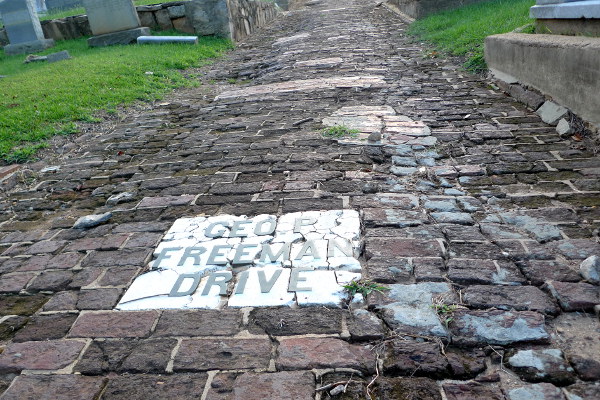
One such street led to the spot where General Hood watched the Battle of Atlanta. A nearby sign reads,
In 1856 James E. Williams (Mayor of Atlanta 1866-1868), built a residence atop this high ground which later became a part of Oakland Cemetery. From the second story of the house, Gen. John B. Hood, in command of Confederate forces, & members of his staff, watched that part of the Battle of Atlanta.
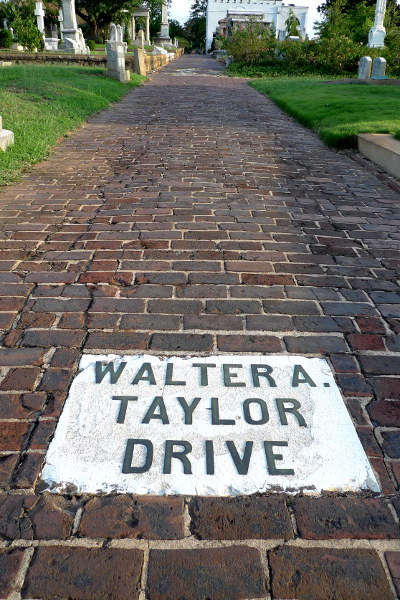
Angels are all over the Oakland Cemetery. As mentioned in the cemetery write-up above, during Victorian times people were obsessed with death and funerary art. Some say this started with the death of Prince Albert and subsequent never-ending mourning period that took over the life of Queen Victoria.
Angels in cemeteries became popular during this time and are often found in association with wealth, children/youth, devastating loss, strong religious belief, and artistic expression.
Here an angel sits on the grave of a 15-year old (Ninetta), praying for and mourning an untimely death.
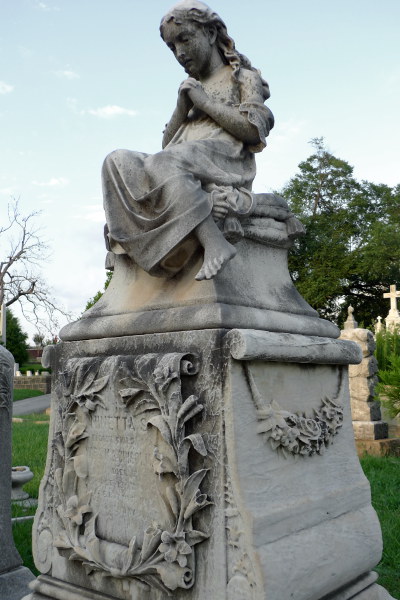
Cherubs are usually only seen on the graves of children. This particular cherub is erasing the name of a child who has passed on.
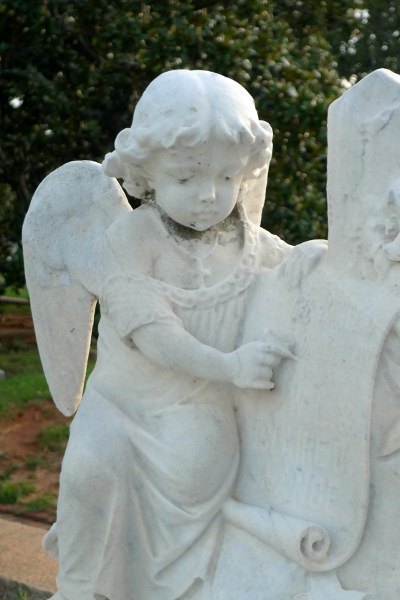
It’s hard to tell what this angel is doing because an arm is missing, but if it were pointing up, that would mean it is showing a soul the way to heaven. A hand pointing down can mean sudden death.
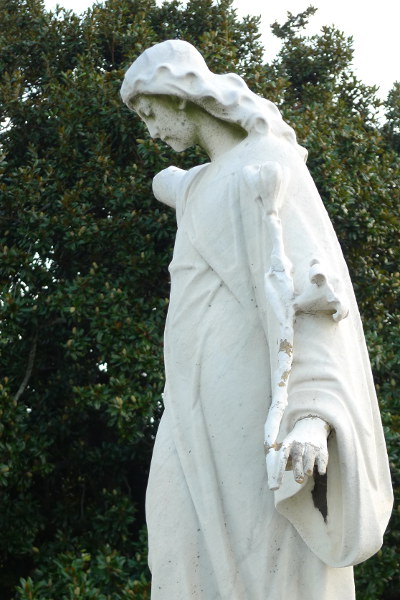
A cherub mourning the death of 5-year old Allen Seymour. The tree with cross and anchor (hope) and broken chain (end of life) are interesting. I’ve never seen this anywhere else.
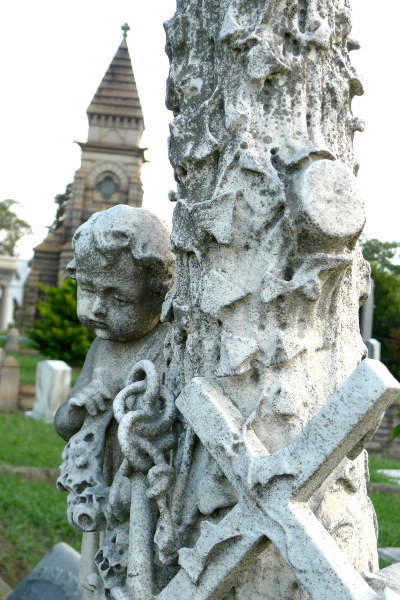
Another angel pointing to heaven while leaning on a cross covered in garland. The cross is a symbol of faith (this one seems to have the initial S on it) and garland symbolizes victory over death.
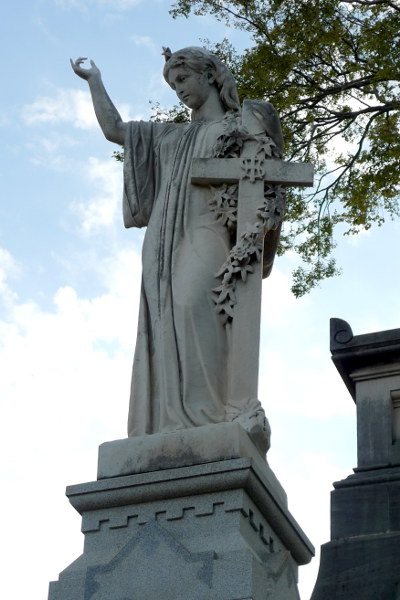
One of the more intriguing discoveries: a mother and daughter from the Neal Family. The two sit together in death, one is holding an open book (faith). The other is holding a maiden’s wreath wrapped in linen (unmarried women) and an olive sprig (hope).
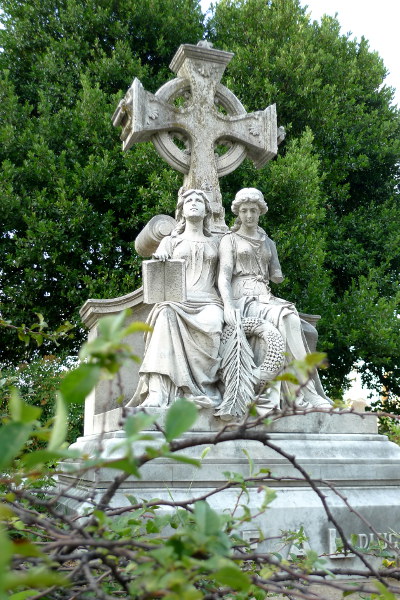
Finally, the unassuming grave of Margaret Mitchell (married name Marsh), the author of Gone with the Wind.
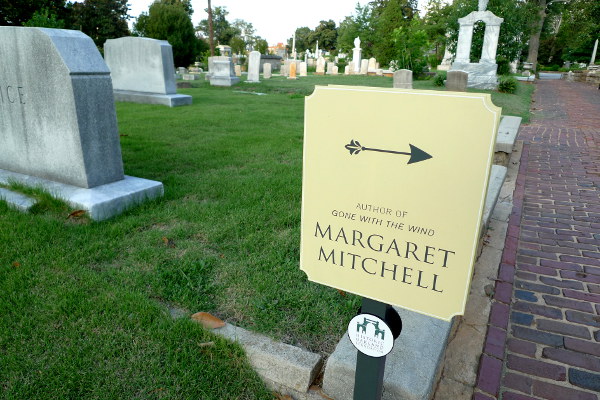
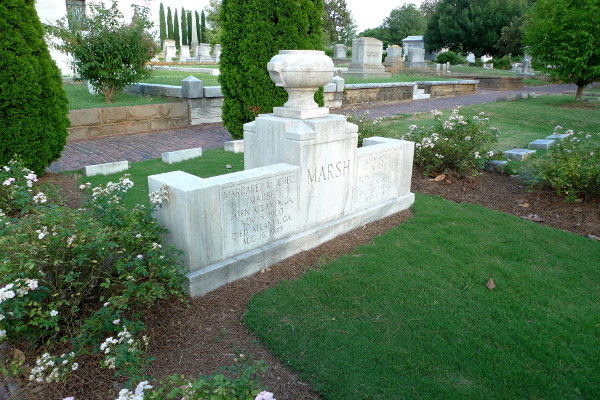
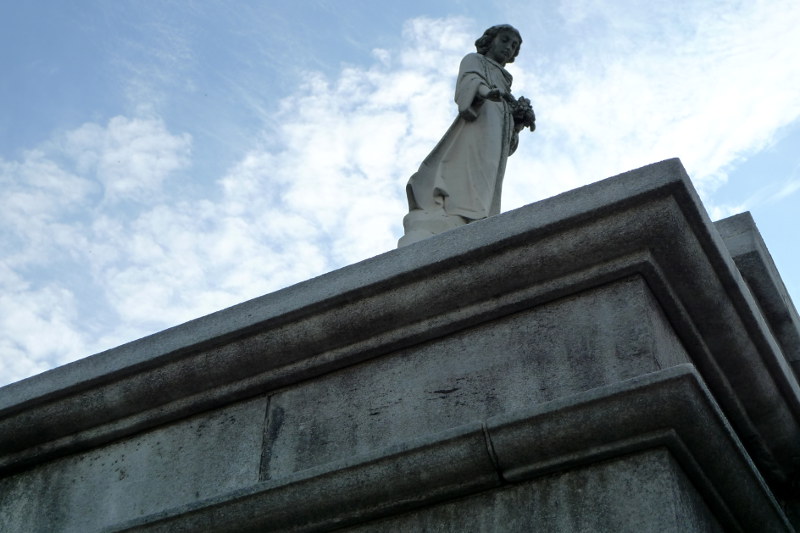
1 comment on “The Angels of Oakland Cemetery”Add yours →